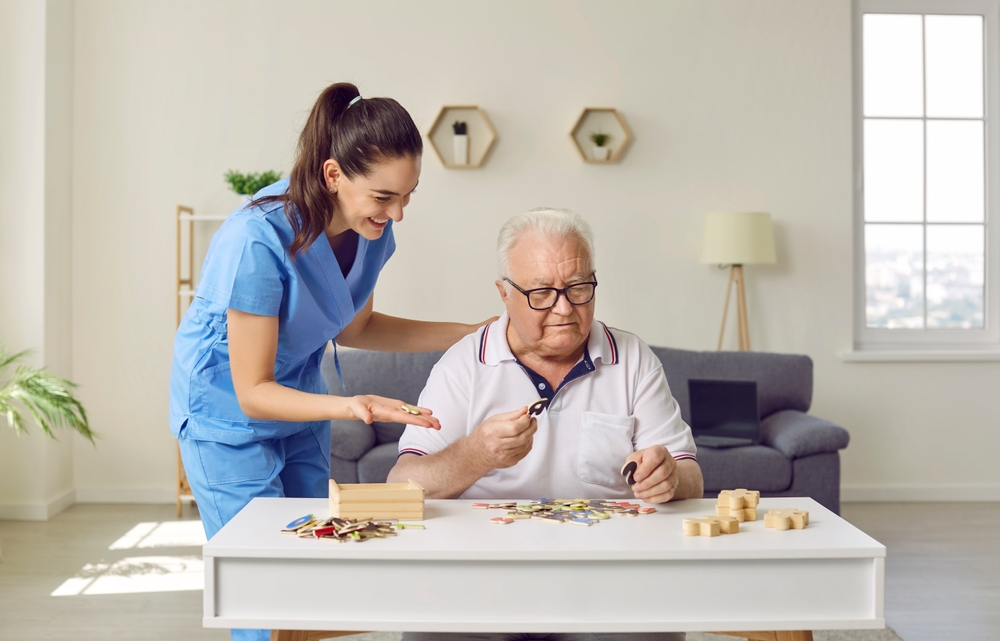Cognition Lab: Advancing Brain Health
The Cognition Lab at Deva Institute of Healthcare & Research is a state-of-the-art facility dedicated to evaluating, diagnosing, and enhancing cognitive functions across different age groups. Our lab specializes in comprehensive cognitive testing, brain training, and rehabilitation therapies to improve memory, attention, problem-solving, and other executive functions.

Why Cognitive Health Matters?
Cognitive abilities are essential for daily functioning, learning, and decision-making. They influence how we think, remember, solve problems, and interact with the world. Cognitive decline can occur due to aging, neurological conditions, injuries, or psychiatric disorders, making early detection and intervention crucial.
Identifying Cognitive Impairment
Cognitive impairment occurs when an individual faces challenges in remembering, learning new information, concentrating, or making decisions that impact daily life. The severity can range from mild to severe.
Common signs include:
• Confusion or difficulty with naming.
• Trouble paying attention.
• Memory lapses.
• Slowed information processing.
• Speech initiation difficulties.
• Poor motor coordination.
• Impaired judgment.
• Challenges in critical thinking, planning, organizing, and problem-solving.
Potential Causes of Cognitive Impairment
Cognitive impairment can arise from various factors:
• Short-term or Reversible Causes:
o Infections.
o Vitamin deficiencies.
o Dehydration.
o Medication reactions.
• Long-term or Permanent Causes:
o Dementia.
o Stroke.
o Brain injuries.
o Seizure disorders.
o Childhood trauma.
o Psychiatric disorders such as schizophrenia, depression, bipolar disorder, obsessive-compulsive disorder (OCD), attention-deficit/hyperactivity disorder (ADHD), substance and alcohol dependence, borderline personality disorder, and neurocognitive disorders.
Cognitive Challenges in Children and Adolescents
In younger populations, cognitive decline may present as underachievement in academic settings, difficulties in attention and concentration, memory issues, and challenges in problem-solving and decision-making. Early identification and intervention are crucial to support optimal development.
Our Services
Cognitive Assessment & Diagnosis
We provide scientifically validated cognitive testing for:
- Memory & Recall (Short-term & Long-term Memory)
- Attention & Focus (Sustained, Selective, and Divided Attention)
- Processing Speed (How fast the brain interprets information)
- Problem-Solving & Decision Making
- Executive Functions (Planning, Organizing, Time Management)
- Verbal & Non-verbal Intelligence
- Emotional & Social Cognition
Who Should Get a Cognitive Assessment?
- Individuals experiencing memory issues or forgetfulness
- Students struggling with focus, learning, and academic performance
- Professionals facing workplace concentration challenges
- Seniors wanting to maintain brain health & prevent dementia
- People with neurological conditions (Stroke, TBI, Seizures, etc.)
- Individuals with psychiatric disorders (Depression, Anxiety, OCD, ADHD, etc.)
Cognitive Training & Brain Exercises
We offer personalized brain training programs using scientifically proven techniques to enhance cognitive skills such as:
- Neuroplasticity-Based Brain Training
- Attention & Focus Enhancement Exercises
- Memory Boosting Strategies
- Problem-Solving & Decision-Making Workshops
- Mental Agility & Speed Training
- Mindfulness & Meditation for Cognitive Clarity
Our brain exercises and activities are designed to boost neuroplasticity, strengthen neural connections, and improve mental agility.
Cognitive Rehabilitation for Neurological Disorders
For individuals suffering from brain injuries, strokes, dementia, or cognitive impairments, we provide:
- Post-Stroke Cognitive Therapy
- Traumatic Brain Injury (TBI) Recovery
- Dementia & Alzheimer’s Cognitive Support
- Neurocognitive Therapy for Psychiatric Conditions
- Cognitive-Behavioral Training for ADHD & OCD
Our multidisciplinary team of psychologists, neurologists, and cognitive therapists work together to create a customized recovery plan.
Digital & AI-Powered Cognitive Tools
We integrate advanced technology to provide real-time cognitive assessments and progress tracking using:
- AI-Based Neuropsychological Tests
- Virtual Reality (VR) for Cognitive Rehabilitation
- Mobile & Web-Based Brain Training Apps
- Biofeedback & Neurofeedback Therapy
These tools help in tracking improvements and ensuring long-term brain health.
FAQs: Frequently Asked Questions
1. What is cognitive assessment, and who needs it?
A cognitive assessment evaluates mental functions like memory, attention, problem-solving, and reasoning. It is useful for students, professionals, elderly individuals, and those experiencing cognitive decline or neurological conditions.
2. How long does a cognitive assessment take?
A typical assessment takes 1.5 to 3 hours, depending on the complexity of the tests and the individual’s specific concerns.
3. Is cognitive training effective for improving memory and focus?
Yes! Scientifically backed brain training exercises help strengthen neural pathways, improve memory, and enhance problem-solving skills, especially when done consistently.
4. Can cognitive therapy help with ADHD and learning disabilities?
Absolutely! Our cognitive-behavioral training programs are designed to enhance attention, executive functions, and impulse control, which can significantly benefit individuals with ADHD and learning difficulties.
5. Are the cognitive training programs safe for elderly individuals?
Yes! Our programs are tailored to different age groups and are designed to be safe, engaging, and beneficial for seniors to prevent cognitive decline and dementia.
6. What conditions can cognitive rehabilitation help with?
Cognitive rehabilitation can benefit individuals with stroke, brain injuries, dementia, Parkinson’s disease, depression, OCD, schizophrenia, and other neurocognitive disorders.
7. How do I book an assessment or consultation?
You can call us at 0542 2313652,2310670, email hello@devainstitute.com, or visit our website to schedule an appointment.
Why Choose Deva Institute’s Cognition Lab?
- Comprehensive Cognitive Testing & Diagnosis
- Personalized Brain Training Programs
- Evidence-Based Cognitive Therapy
- Cutting-Edge Technology & AI Integration
- Multidisciplinary Team of Experts
We are committed to helping individuals enhance their cognitive abilities, recover from impairments, and achieve mental clarity for a better quality of life.
